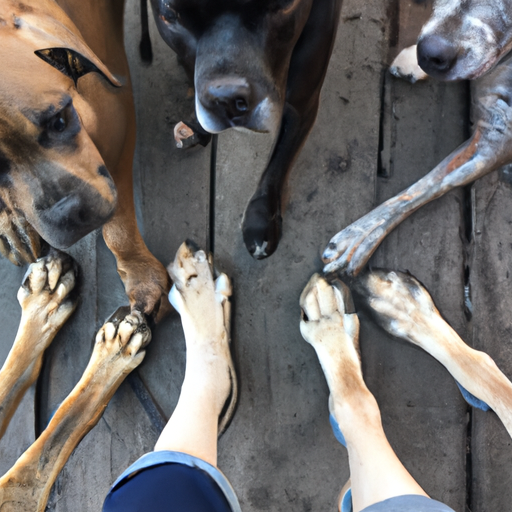“`markdown
Which Dogs Have Webbed Feet?
Introduction
As a caregiver, you may have noticed that some dogs have an unusual trait – webbed feet. Just like ducks and other water-loving creatures, certain dog breeds have this aquatic adaptation. But what does this mean for the dog, and what breeds typically exhibit this trait?
The Purpose of Webbed Feet in Dogs
Webbed feet in dogs serve a particular purpose. The extra skin between their toes helps them swim efficiently and navigate through the water. Whether for hunting, retrieving, or rescuing, these dogs can perform tasks in the water that other breeds can’t.
- Hunting: Dogs with webbed feet can swim out to retrieve prey without the hunter needing to enter the water.
- Retrieving: Dogs bred for retrieving game often have webbed feet, which helps them swim efficiently.
- Rescue: Some breeds, like the Newfoundland, are known for their water rescue abilities. Their webbed feet help them swim strongly against currents.
Breeds with Webbed Feet
There are several breeds of dogs that are known for having webbed feet. These include, but are not limited to:
- Newfoundland
- Labrador Retriever
- Chesapeake Bay Retriever
- Portuguese Water Dog
- Nova Scotia Duck Tolling Retriever
It’s important to note that while these breeds are known for having webbed feet, individual variation exists.
Here’s a comparison table of these breeds:
| Breed | Size | Coat | Lifespan |
|---|---|---|---|
| Newfoundland | Large | Thick, water-resistant | 8-10 years |
| Labrador Retriever | Medium to Large | Short, dense | 10-12 years |
| Chesapeake Bay Retriever | Medium to Large | Dense, oily | 10-13 years |
| Portuguese Water Dog | Medium | Wavy or curly | 12-15 years |
| Nova Scotia Duck Tolling Retriever | Medium | Dense, water-repellent | 10-14 years |
Caring for Dogs with Webbed Feet
If you’re a caregiver to a dog with webbed feet, it’s important to keep an eye on their paws. They’re more prone to infections between their toes, so regular cleaning and drying are necessary. Additionally, these breeds often love to swim, so providing them with opportunities to exercise in the water can keep them happy and healthy.
FAQs
Q: Do all dogs have webbed feet?
A: No, not all dogs have webbed feet. It’s more common in breeds that have been bred for water work.
Q: Can a dog with webbed feet swim better than one without?
A: Generally, yes. The webbing helps them paddle more efficiently.
Q: Are there health concerns associated with webbed feet?
A: Webbed feet themselves don’t usually cause health problems, but they can trap moisture, leading to infections. Regular paw care is essential.
Q: Can a dog with webbed feet still walk comfortably on land?
A: Absolutely. Webbed feet don’t affect a dog’s ability to walk or run on land.
“`



